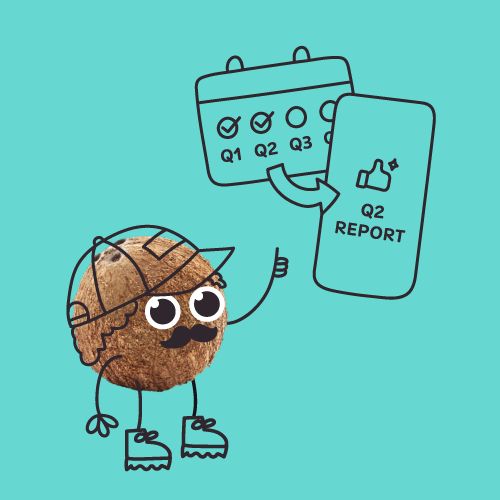Employment income
It's important to add your PAYE employment income for the year to your tax return. This is because your salary contributes to your personal tax allowance, and affects the tax rate band that you pay on your self-employment income.
Coconut can anticipate how your PAYE employment income affects your tax rate band and personal allowance, but in order to do so, we need to know the gross pay you expect to earn from employment (the amount pre-tax and deductions).
If you only record your net PAYE income (post-tax and deductions) in your transactions, we won’t know what deductions have already been made. The best way to ensure you get the right number is to update your tax profile in Coconut with both your annual salary and months in employment.
Income Tax
You get a personal allowance each year which is tax free, then you pay 20% up to the higher rate band, then 40%. There's an additional rate of 45% for high earners too.
Earnings below personal allowance (£12,570)
Basic rate (£12,571- £50,270)
Higher rate (£50,271 – £150,000)
Additional rate (Over £150,000)
Your Personal allowance also reduces by £2 for every £1 you earn over £100,000.
If you live in Scotland different income tax rates apply, these are shown below:
Earnings below personal allowance (£12,570)
Starter rate (£12,571- £14,667)
Basic rate (£14,668 and £25,296)
Intermediate rate (£25,297 and £43,662)
Higher rate (£43,663 and £150,000)
Additional rate (Over £150,000)
National Insurance
Class 4
These are contributions we make primarily towards state pensions, but also towards other benefits like unemployment and maternity pay. There's a smaller allowance for NI than for Income Tax.
As a sole trader, you pay "Class 4" National Insurance based on the following rates:
Note that the main rate if you're self-employed is 9%, but if you're employed it's 12%.
Class 2
In addition to this, you also pay "Class 2" National Insurance, which is £2.95 per week, so £153 a year - you can pay this along with the rest of your tax bill at the end of the year.
The threshold for paying class 2 national insurance is £6,205. If you earn less than this, then you don't have to pay this. More on this on the Gov website.












